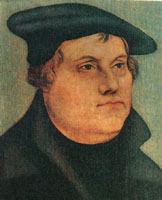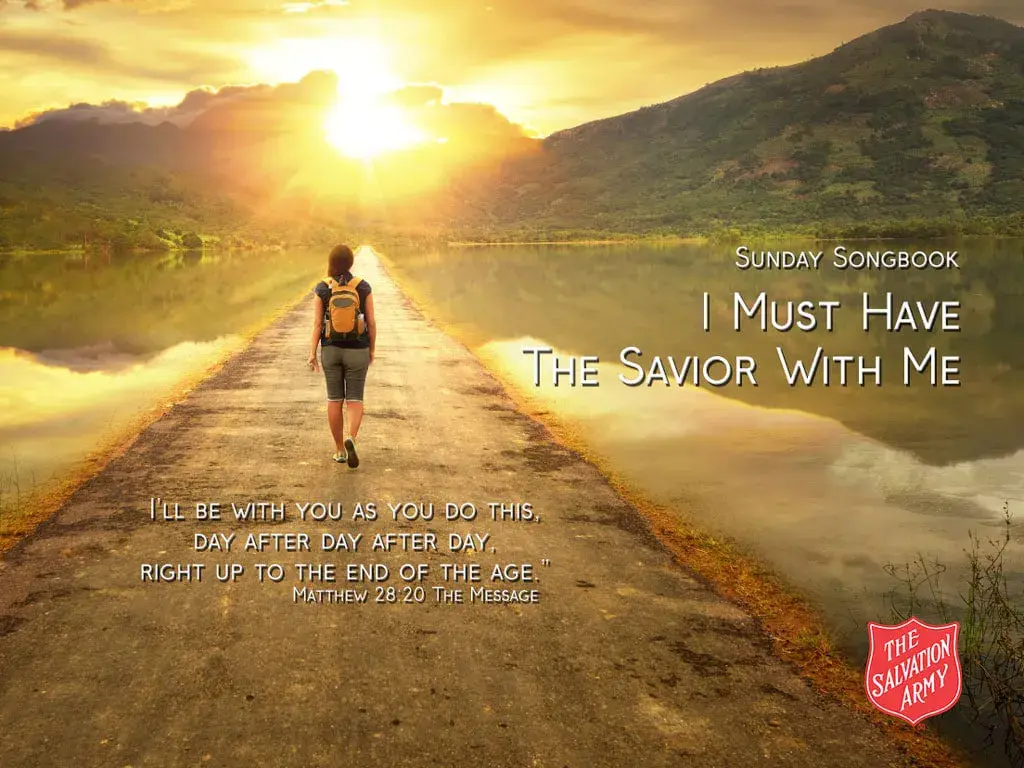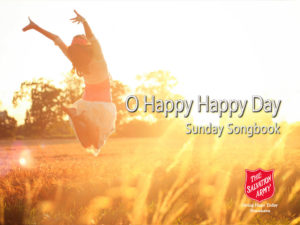A mighty fortress is our God,
A bulwark never failing;
Our helper He, amid the flood
Of mortal ills prevailing,
For still our ancient foe
Doth seek to work us woe;
His craft and power are great,
And armed with cruel hate,
On earth is not his equal.
Did we in our own strength confide,
Our striving would be losing;
Were not the right Man on our side,
The Man of God’s own choosing.
Dost ask who that may be?
Christ Jesus, it is He;
Lord Sabaoth His name,
From age to age the same,
And He must win the battle.
And though this world, with demons filled,
Should threaten to undo us,
We will not fear, for God hath willed
His truth to triumph through us.
The prince of darkness grim,
We tremble not for him;
His rage we can endure,
For lo! His doom is sure;
One little word shall fell him.
That word above all earthly powers,
No thanks to them abideth;
The Spirit and the gifts are ours
Through Him who with us sideth.
Let goods and kindred go,
This mortal life also;
The body they may kill;
God’s truth abideth still;
His Kingdom is for ever.
At Christmastime we read of the controversial, mysterious authorship of Away in a Manger , which is sometimes called Luther’s Cradle Hymn . With this week’s hymn, we have one definitely written by Martin Luther, and translated into English by Frederic Henry Hedge. Luther also wrote the tune, drawing on his background in an area of Germany known for its music. He lived from 1483 to 1546.
 Besides being a great Christian reformer, Bible translator and political leader, Martin Luther was an excellent musician. As a boy he sang in a choir that performed at weddings and funerals, and also played the flute. When the Protestant Reformation began, Luther wanted to bring musical worship back to the church, especially in the form of congregational hymns sung in everyday language. To this end, he wrote a number of hymns himself, sometimes borrowing secular tunes, just as the Salvation Army’s founder, William Booth, liked to do! For this Luther was sometimes criticised, as the music was connected to taverns, and he was forced to “let the devil have it back again”. The above song certainly shows his awareness of our constant battle against Satan. Apparently it was difficult to translate the hymn into English because the German text is so vivid. About eighty English versions are available, including one by Thomas Carlisle, but the one shown here is most well-known, especially in North America.
Besides being a great Christian reformer, Bible translator and political leader, Martin Luther was an excellent musician. As a boy he sang in a choir that performed at weddings and funerals, and also played the flute. When the Protestant Reformation began, Luther wanted to bring musical worship back to the church, especially in the form of congregational hymns sung in everyday language. To this end, he wrote a number of hymns himself, sometimes borrowing secular tunes, just as the Salvation Army’s founder, William Booth, liked to do! For this Luther was sometimes criticised, as the music was connected to taverns, and he was forced to “let the devil have it back again”. The above song certainly shows his awareness of our constant battle against Satan. Apparently it was difficult to translate the hymn into English because the German text is so vivid. About eighty English versions are available, including one by Thomas Carlisle, but the one shown here is most well-known, especially in North America.
WORDS AND MUSIC: MARTIN LUTHER; TRS. FREDERIC HENRY HEDGE
S.A. SONG BOOK, 1987 AND 2015 EDITIONS, #1
REFERENCES: MORGAN, ROBERT J., THEN SINGS MY SOUL S.A. SONG BOOK WEBSITE –usawest.org







